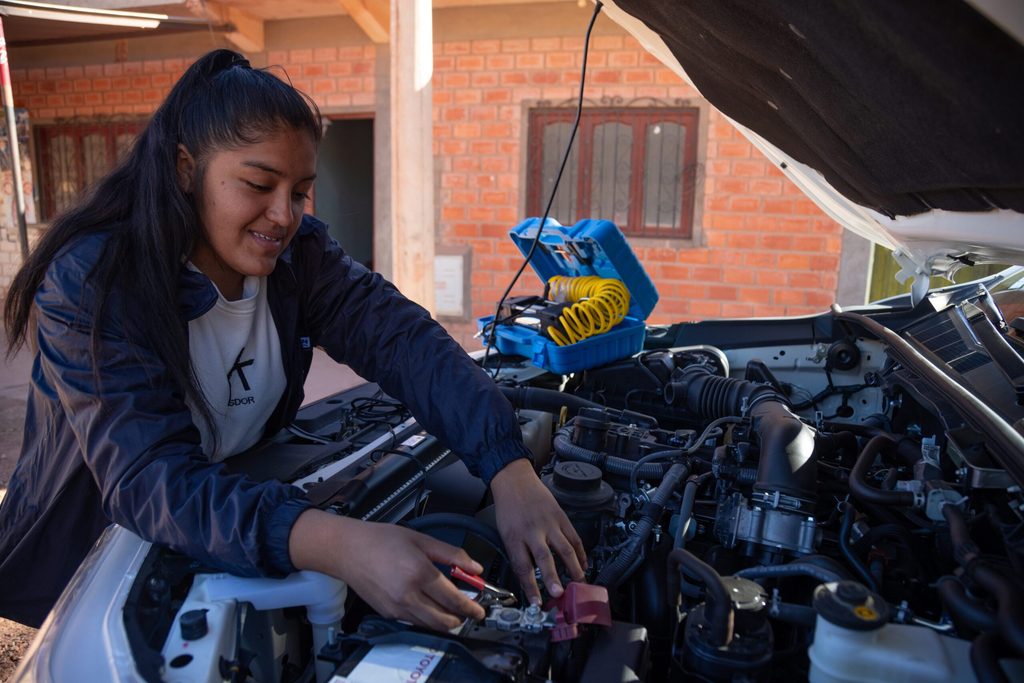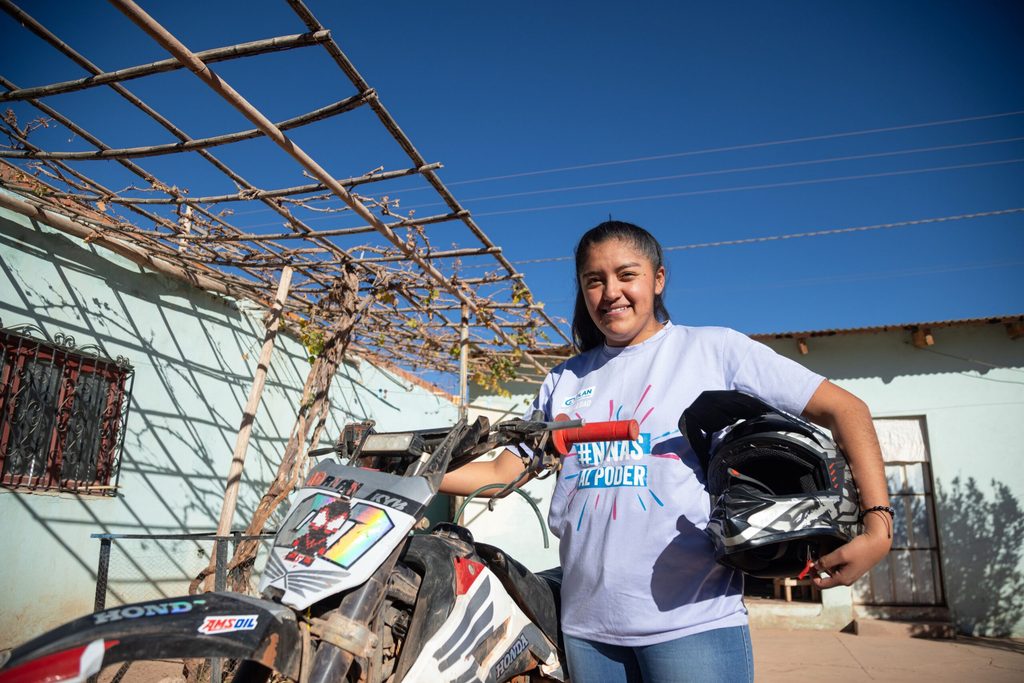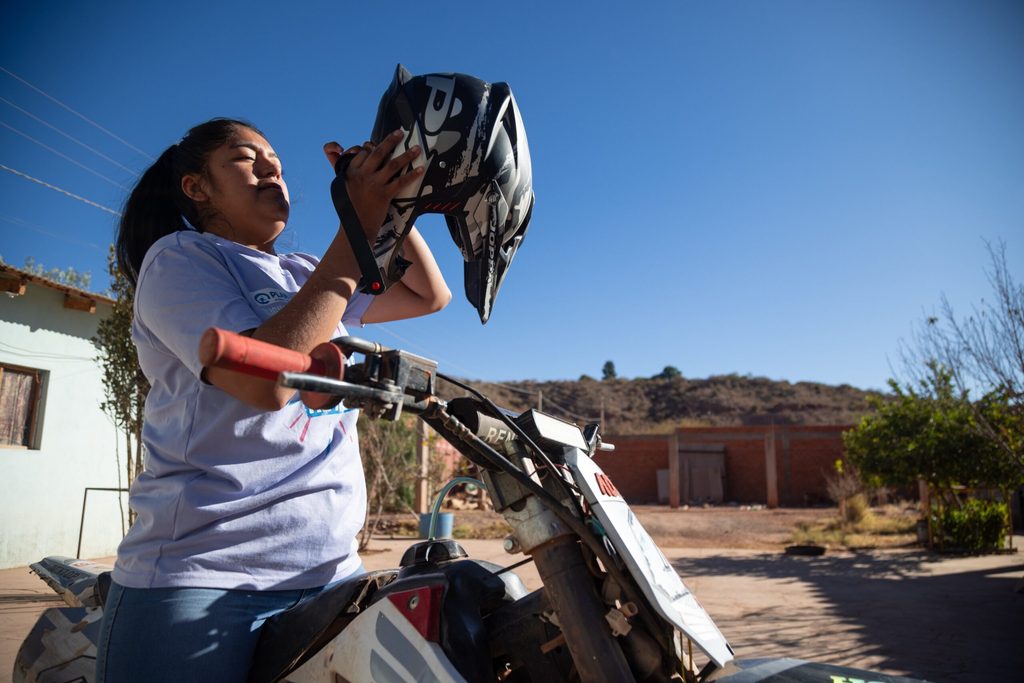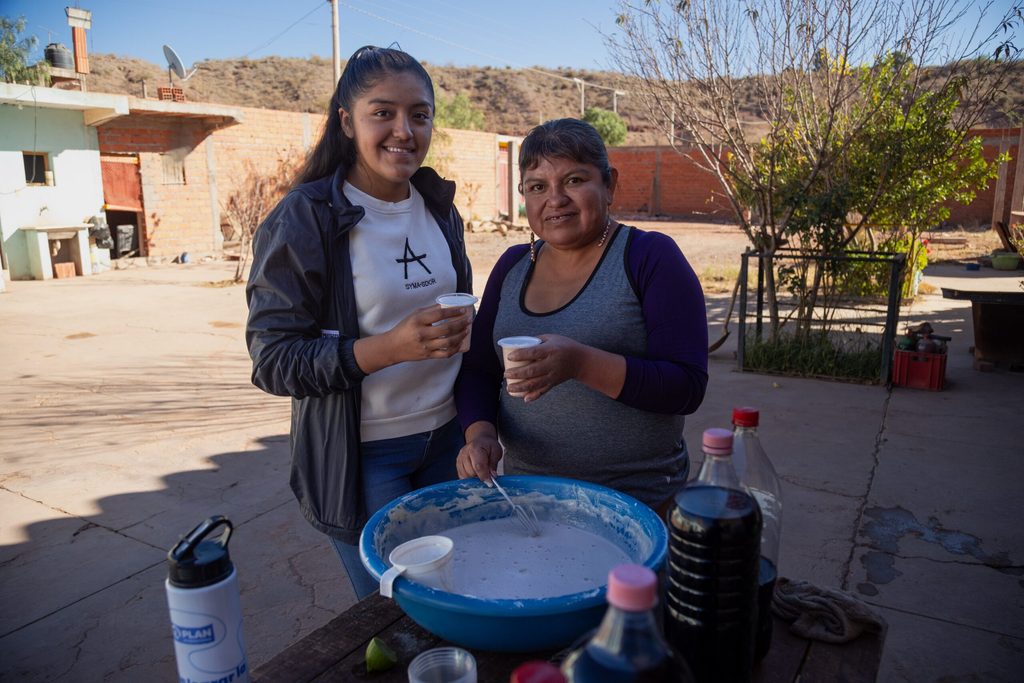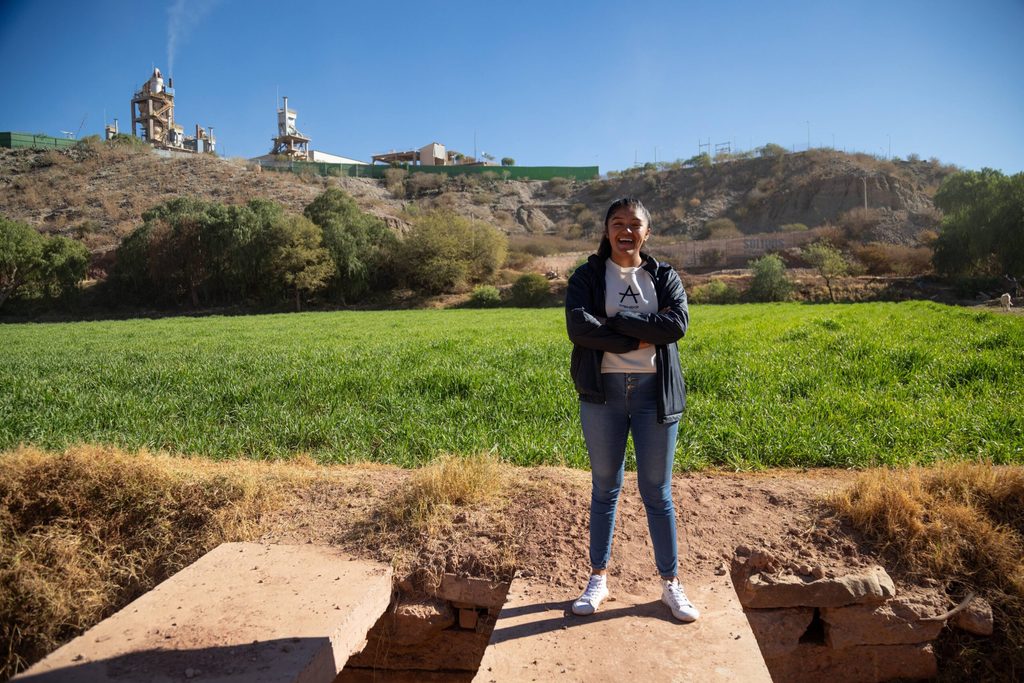María José: A STEM Girl Breaking Taboos and Changing Mindsets
“Why are you here? Why don’t you study something ‘for girls’?”
These are some of the questions María José constantly faces for daring to break gender stereotypes in "El Puente" a small municipality northwest of the city of Tarija.
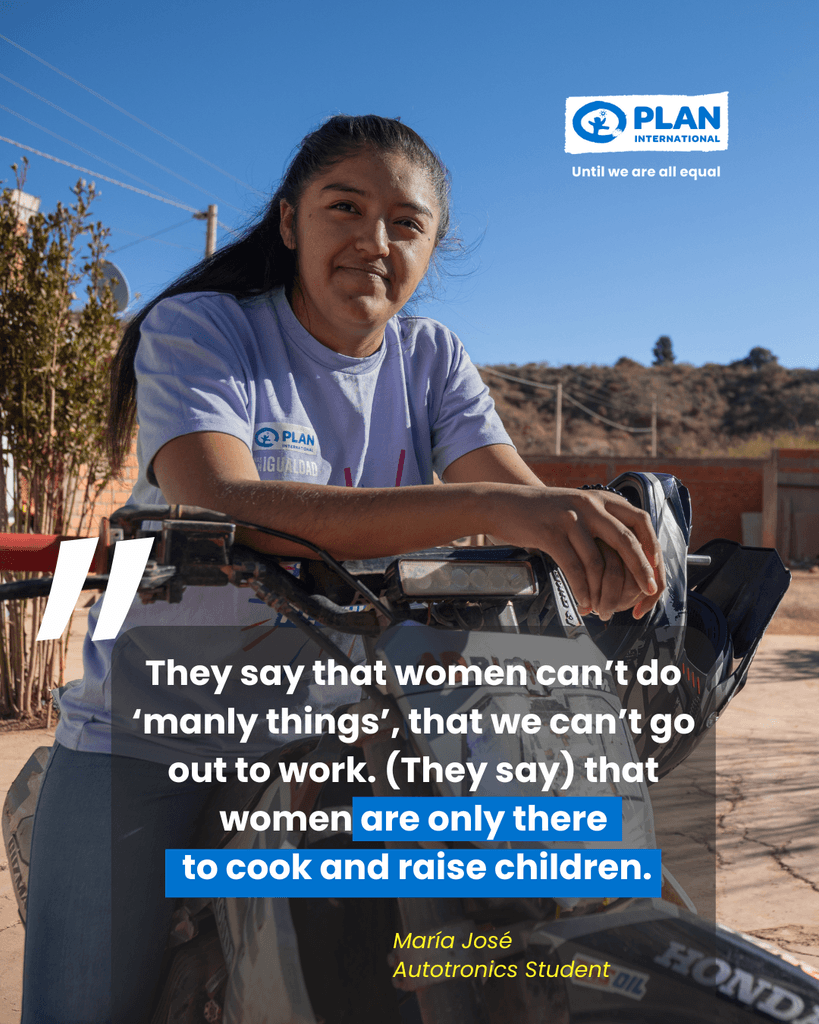
In Bolivia’s rural communities, where educational opportunities are often scarce, choosing a professional career is already a challenge for young people. But for women, the obstacles are even greater.
Only one in three women from rural areas enrolls in higher education, a rate far below the national average of 49.4%. Moreover, academic options outside major cities, if they exist at all, are highly limited.
“There’s still this mindset among older people, among religious people, that says women can’t do ‘men’s things,’ that they shouldn’t work. (They say) that a woman’s place is in the kitchen and having children,” María José laments about the attitudes in her town.
At 20 years old, María José decided to challenge these gender roles and expectations. She chose to pursue a career in a traditionally “male” field.
“My interest in Autotrónica—Auto Electronics—started when I was a child. I was always around my dad, and he has a car and a motorcycle,” she shares.
Her passion for engines and machines runs so deep that, at just 16, she secretly entered a motorcycle race.
“I did well,” María José recalls with a mischievous smile.
María José, a STEM Girl
Autotrónica is a branch of engineering that applies electronic knowledge and techniques to the automotive field. This career falls within the broader category of Science, Technology, Engineering, and Mathematics (STEM).
In Latin America and the Caribbean, despite significant variations between countries, only 41% of STEM graduates are women (2024).

In Bolivia, data from public universities in major cities shows that only three out of ten students enrolled in Engineering and Technology programs are women (2023).
According to multiple studies, this underrepresentation is primarily caused by “the persistence of cultural and social gender norms” that influence the academic and professional choices of girls and adolescents.
However, young female leaders like María José are beginning to crack these gender barriers, paving the way for future generations of STEM girls.
It hasn’t been an easy journey. Just a few years ago, around 2020, María José felt lost, insecure, and overwhelmed by her own shyness. Then she started attending workshops, courses, and projects that changed her perspective.
One of her most cherished experiences was the Enfócate Project by Plan International Bolivia.
“The Enfócate project helped me overcome my fear of speaking to people and to socialize. That’s where a new María José was born.”
Tuc Tuc Taxi: María José’s First Business
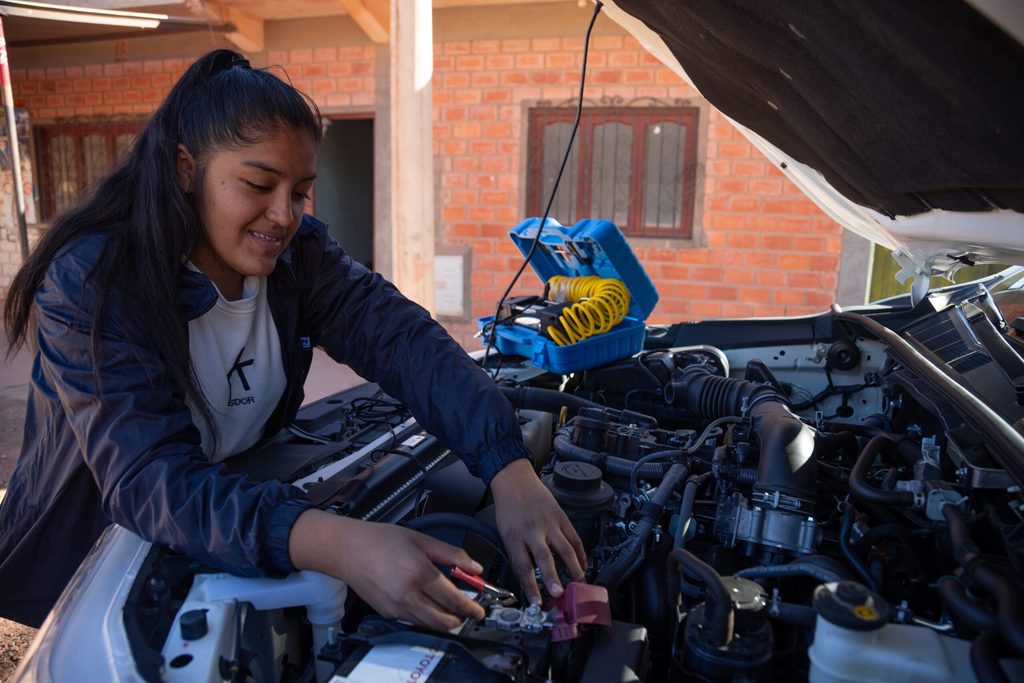
Women’s economic independence is a constant concern for the “new María José.”
That’s why she decided to start her own public transportation business: Tuc Tuc Taxi.
The toritos—a popular term for motorcycle taxis—are a relatively new means of transportation in María José’s town.
So, when she had the opportunity to access seed capital through the Inclusive Youth Entrepreneurship project by Plan International and secure a loan with her family’s support, María José took the leap and launched her own business.
During the week, when she is busy with her Autotrónica studies, her cousin operates the torito. This way, María José also helps her cousin become financially independent.
María José’s Impact on Her Community
Just as she supports her cousin, María José also feels committed to empowering women and young people in her community.
One of the most pressing issues for these groups in Bolivia is teenage pregnancy—at least 90 cases are recorded every day, roughly one every four hours.
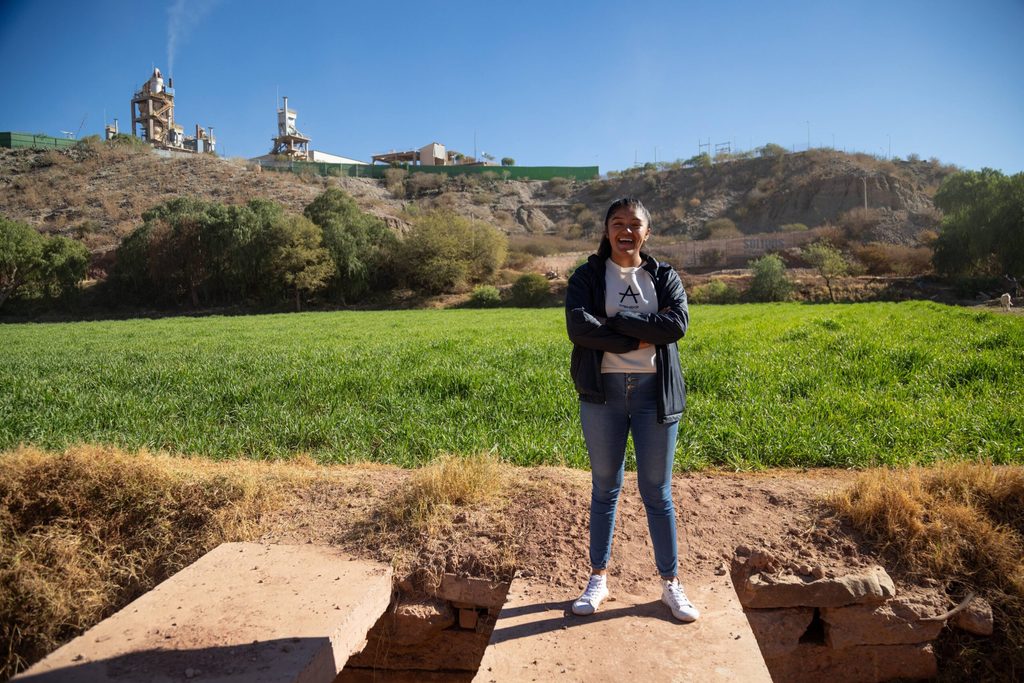
“People thought that talking about contraception encouraged pregnancy. But that wasn’t the case—we wanted to prevent it,” María José explains, recalling how her community initially reacted to the work of PJTM—Youth Power Transforming the World.
María José and PJTM were motivated by the countless stories of shattered dreams they had heard.
This youth organization emerged from the Enfócate Project by Plan International Bolivia. Its goal was to encourage organized adolescents and young people to help reduce teenage pregnancy and gender-based violence in 10 municipalities across the country.
The Enfócate initiatives on sexual and reproductive rights reached 18,488 children, adolescents, and young people nationwide. The project also supported the creation of 10 youth networks, each with 30 leaders aged 10 to 24. Among them was María José.
According to a study by the United Nations Population Fund (UNFPA) on the socioeconomic consequences of unintended teenage pregnancy in Bolivia, adolescent mothers are 2.7 times less likely to earn a university degree compared to those who delay motherhood.
Additionally, the study revealed that women who had a child during adolescence face significant income and job opportunity gaps, earning 28.1% less than those who postponed motherhood.
Seeing firsthand the impact on young women in her community, María José’s youth organization took action to help reduce teenage pregnancies. From her perspective, they succeeded.
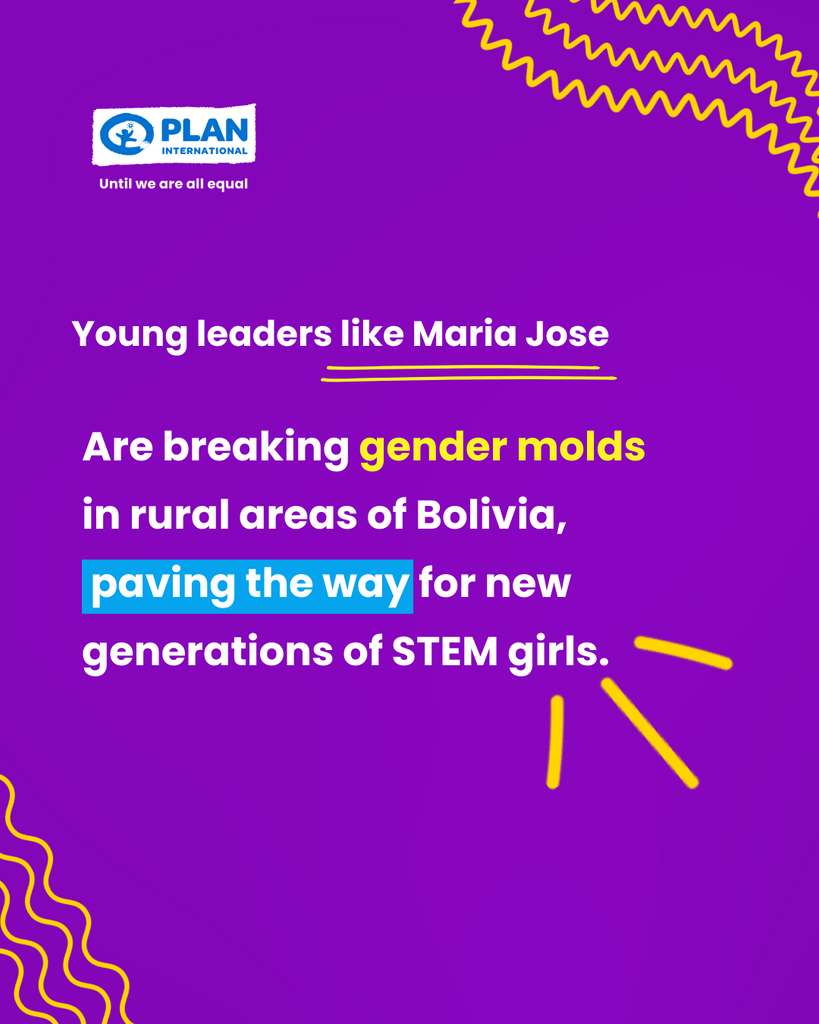
But social misunderstandings were constant. They became a challenge to their awareness and prevention campaign.
“People saw us as the weird kids who talked about uncomfortable things,” María José recalls.
Despite the positive results, many in her town still resist comprehensive sexual education. But María José and her peers persist, breaking taboos and shifting mentalities.
What was once considered an inappropriate topic is now recognized as a necessary effort.
This was yet another of María José’s great achievements: changing long-standing beliefs and perceptions that remain deeply rooted across the country.


